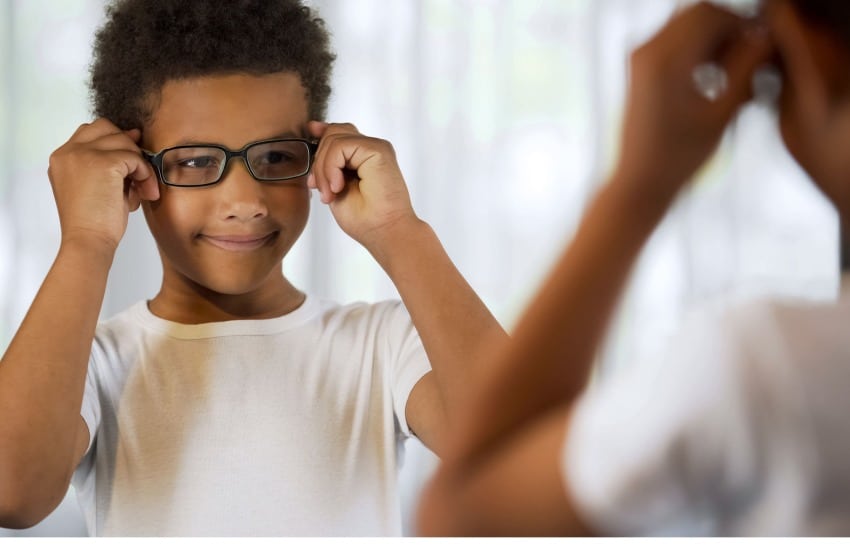Questions to Ask About Your Child’s Vision

Vision is an important learning pathway for infants and toddlers. During a child’s first month, they might show interest in watching their caregiver’s face. By 2 months, they might even follow their caregiver’s movements with their eyes.
Some say that 85% of learning happens through the eyes. Sharing smiles and common experiences are important parts of early bonding. Seeing the world helps to better understand the world.
For these reasons, it is important to observe your child’s visual development and health.
Does My Child Have Typical Vision?
Here is a list of questions parents can use to determine if their child has typical vision:
- Does your child use their eyes to visually explore objects?
- Does your child follow people or objects with their eyes as they move past them?
- Does your child see small things? (e.g., small treats on a tray)
- Does your child see things at a distance? (e.g., people as they approach from across the room)
- Was your child born prematurely?
- Are you concerned about your child’s vision?
- Do both of your child’s eyes look the same in photographs?
- Does your child show sensitivity to light (extreme squinting or tearing)?
- If your child is over 3 months of age, do they stare at lights for a long time?
Should I Be Concerned About My Child’s Vision?
The following is a list of signs that could warrant a visit to your healthcare provider:
- Poor eye contact while being fed
- Poor eye contact toward other people
- One eye wandering or moving differently than the other (when not sleepy)
- Poking at their eyes or frequently rubbing
- Excessive blinking
- Watery eyes
- Placing head too close to objects
- Covering or closing an eye when looking at an object
- Over- or under-reaching for an object
If you have concerns about a child’s vision, refer the child through Help Me Grow MN to connect with your local school district for screening and resources. Visit helpmegrowmn.org or call 1-866-693-GROW (4769).
Sources:
- “Early Childhood Vision Observation and Interview Protocol,” Blind-Visually Impaired resources, Minnesota Department of Education



